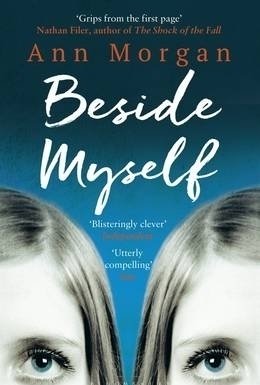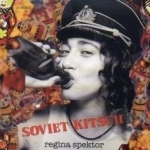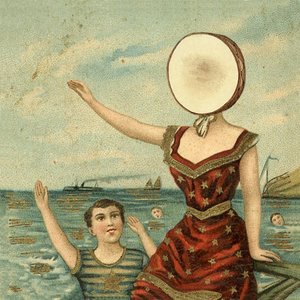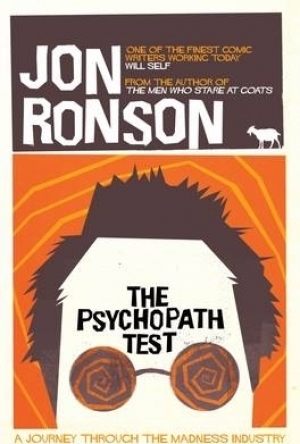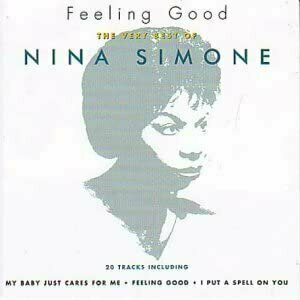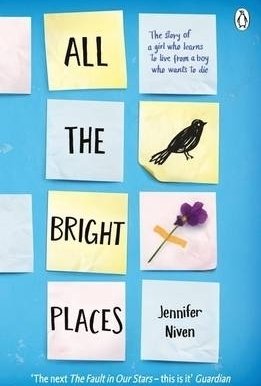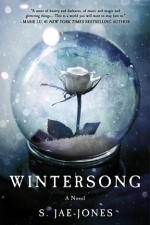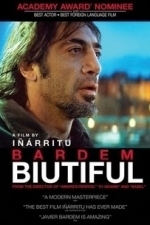Search
Search results
Little Ray Of Sunshine (41 KP) rated Beside Myself in Books
Jan 11, 2019 (Updated Feb 10, 2019)
Book Review | Beside Myself by Ann Morgan
*Original post: http://bit.ly/2ehWQVh*
Beside Myself is about Helen and Ellie who are identical twins. Helen is the leader and Ellie is the follower. Ellie was born after Helen she had problems when she was born she had her umbilical cord wrapped around her neck so this caused Ellie communication and functional skills.
I started to hate the character, Helen
because she was awful to Ellie she bullied her and pulled pranks. I felt sorry for Ellie as she doesn't get the attention from their mother. Helen and Ellie as gone through a traumatic event in their life as their biological father took his own life so their mother couldn't cope and started neglecting them. I didn't like how their mother always spoiled Helen over Ellie and Helen always got the best of everything.
The story is all about that one day when Helen and Ellie were out playing and Helen thought it would be fun to swap places and fool everyone around them. But Helen thought it would only last for one day and everything will go back to normal the next day. But Ellie grabbed the chance as she was getting the attention she needs. So Helen life turns upside down and she starts to live Ellie life and she is shocked how Ellie is treated. Helen did try to tell their mother but she didn't believe her and so you follow Helen's nightmare through her school life, home life and through her adult life.
Helen doesn't get the support from home so she starts to rebel and go down the wrong path. You really feel for her and you experience what she is going through as the author writes in the first person.
This book touches on Mental Health and the writing is so true and beautiful as Helen is suffering from Bipolar Disorder. The book gripped me as I wanted to know how Helen's life will end. I keep wanting her mother to realize that she is the real 'Helen'. I won't say anymore as I would like you to read it for yourself.
Beside Myself is about Helen and Ellie who are identical twins. Helen is the leader and Ellie is the follower. Ellie was born after Helen she had problems when she was born she had her umbilical cord wrapped around her neck so this caused Ellie communication and functional skills.
I started to hate the character, Helen
because she was awful to Ellie she bullied her and pulled pranks. I felt sorry for Ellie as she doesn't get the attention from their mother. Helen and Ellie as gone through a traumatic event in their life as their biological father took his own life so their mother couldn't cope and started neglecting them. I didn't like how their mother always spoiled Helen over Ellie and Helen always got the best of everything.
The story is all about that one day when Helen and Ellie were out playing and Helen thought it would be fun to swap places and fool everyone around them. But Helen thought it would only last for one day and everything will go back to normal the next day. But Ellie grabbed the chance as she was getting the attention she needs. So Helen life turns upside down and she starts to live Ellie life and she is shocked how Ellie is treated. Helen did try to tell their mother but she didn't believe her and so you follow Helen's nightmare through her school life, home life and through her adult life.
Helen doesn't get the support from home so she starts to rebel and go down the wrong path. You really feel for her and you experience what she is going through as the author writes in the first person.
This book touches on Mental Health and the writing is so true and beautiful as Helen is suffering from Bipolar Disorder. The book gripped me as I wanted to know how Helen's life will end. I keep wanting her mother to realize that she is the real 'Helen'. I won't say anymore as I would like you to read it for yourself.
Tim Booth recommended Soviet Kitsch by Regina Spektor in Music (curated)
Blaine Harrison recommended track In the Aeroplane Over the Sea by Neutral Milk Hotel in In the Aeroplane Over the Sea by Neutral Milk Hotel in Music (curated)
BookblogbyCari (345 KP) rated The Psychopath Test in Books
Sep 11, 2018
This book is remarkably entertaining – I can see why it’s having such a long stint in the bookseller’s shelves! It’s most definitely written for the lay person, and that goes some way to explaining the book’s longevity.
It logs the course of events taken by Jon Ronson as he interviews some people who are deemed crazy, or psychopathic, and some people who diagnose psychological traits. The start of Ronson’s journey is intriguing - it begins when various academics, predominately neuroscientists, are sent mysterious and cryptic packages. They all rush onto online forums trying to figure out what it’s all about. Unfortunately, this section comes to an abrupt and disappointing conclusion (no spoilers).
This all changes in Chapter 2, however. Here, Ronson meets a man, Tony, who claims to have faked mental illness in order to get put into a psychiatric facility rather than a traditional prison. The Scientologists are on his side, and they send Ronson Broadmoor’s file on Tony, but with significant omissions, which shed a whole new light on why Tony should be incarcerated.
Chapter 3 describes how in the 1960’s psychiatrist Elliot Barker, held several nude LSD-induced psychotherapy sessions for psychopaths. In Chapter 4, Ronson goes on a conference to learn about Bob Hare’s psychopath checklist, and by Chapter 5, he’s using it in an interview with a leader of a death squad, Toto Constant. In Chapter 6, he uses it in an interview with Al Dunlan, who apparently enjoyed firing 6.000 people from their jobs.
Following a brief interlude to discuss the media, conspiracy theorists and the second coming, the theme of psychopathy is picked up again in Chapter 9 which looks at criminal profiling, and how it was once used to lure one particular suspect into an unwarranted arrest.
Ronson goes off on another tangent in Chapter 10, which discusses the (very real) problem of an apparent ballooning of mental illness diagnoses. Here he tells the tale of what happened when a 4-year-old girl was given 10 pills a day for “childhood bipolar” disorder.
In Ronson’s concluding chapter, he attends a tribunal for the Tony of Chapter 2, and Tony’s fate is decided (no spoilers). By this point, Tony’s charisma has got Ronson taken in, in spite of Tony showing several psychopathic traits.
My take away from the book is that people will have eccentricities, diagnosis or not, and the way to tell if someone is dangerous, is by their actions. Ronson himself has spotted psychopathic traits in himself, despite being overly anxious and not the slightest bit evil. The book sheds a lot of light, not only on the nature of obtaining a diagnosis, but also on its implications.
Whilst I do recommend the book, this book is most definitely not a thorough analysis of the mental health industry, nor the criminal profiling industry. But for entertainment purposes it gets top marks. If you are looking for a more authoritative book on the mental health industry and diagnosis, I recommend Saving Normal by Allen Frances.
It logs the course of events taken by Jon Ronson as he interviews some people who are deemed crazy, or psychopathic, and some people who diagnose psychological traits. The start of Ronson’s journey is intriguing - it begins when various academics, predominately neuroscientists, are sent mysterious and cryptic packages. They all rush onto online forums trying to figure out what it’s all about. Unfortunately, this section comes to an abrupt and disappointing conclusion (no spoilers).
This all changes in Chapter 2, however. Here, Ronson meets a man, Tony, who claims to have faked mental illness in order to get put into a psychiatric facility rather than a traditional prison. The Scientologists are on his side, and they send Ronson Broadmoor’s file on Tony, but with significant omissions, which shed a whole new light on why Tony should be incarcerated.
Chapter 3 describes how in the 1960’s psychiatrist Elliot Barker, held several nude LSD-induced psychotherapy sessions for psychopaths. In Chapter 4, Ronson goes on a conference to learn about Bob Hare’s psychopath checklist, and by Chapter 5, he’s using it in an interview with a leader of a death squad, Toto Constant. In Chapter 6, he uses it in an interview with Al Dunlan, who apparently enjoyed firing 6.000 people from their jobs.
Following a brief interlude to discuss the media, conspiracy theorists and the second coming, the theme of psychopathy is picked up again in Chapter 9 which looks at criminal profiling, and how it was once used to lure one particular suspect into an unwarranted arrest.
Ronson goes off on another tangent in Chapter 10, which discusses the (very real) problem of an apparent ballooning of mental illness diagnoses. Here he tells the tale of what happened when a 4-year-old girl was given 10 pills a day for “childhood bipolar” disorder.
In Ronson’s concluding chapter, he attends a tribunal for the Tony of Chapter 2, and Tony’s fate is decided (no spoilers). By this point, Tony’s charisma has got Ronson taken in, in spite of Tony showing several psychopathic traits.
My take away from the book is that people will have eccentricities, diagnosis or not, and the way to tell if someone is dangerous, is by their actions. Ronson himself has spotted psychopathic traits in himself, despite being overly anxious and not the slightest bit evil. The book sheds a lot of light, not only on the nature of obtaining a diagnosis, but also on its implications.
Whilst I do recommend the book, this book is most definitely not a thorough analysis of the mental health industry, nor the criminal profiling industry. But for entertainment purposes it gets top marks. If you are looking for a more authoritative book on the mental health industry and diagnosis, I recommend Saving Normal by Allen Frances.
Tim Booth recommended Feeling Good: The Very Best of Nina Simone by Nina Simone in Music (curated)
Jessica - Where the Book Ends (15 KP) rated All the Bright Places in Books
Jan 30, 2019
First let me start by saying that though I try to do spoiler free reviews I don’t know if I can do that with this one, so read this review at your own risk. People may not like my review of this book, and that’s okay. To be honest I don’t really like my review of this book, but it’s how I feel and I can’t change that. I desperately wanted to love these characters, but I didn’t. So, lets start with what I did like…
I loved the premise of the story. I loved the feels that the circumstances the characters dealt with gave me. But that’s about it…
For me, the characters were flat. They didn’t show enough emotion given the situations that they dealt with in their lives. Violet doesn’t show much emotion around the death of her sister, the death of Finch, the way her family doesn’t talk about Elenore, the way her friends treat her or Finch. Finch is just as bad, he doesn’t show much emotion over the demise of his family, or the way his dad treats him, and not about the fact that his mom is just a shell who drinks wine and doesn’t care about her children. They bottle it up and that leaves the reader with nothing to relate to, or feel. Feelings your characters have is a way for you to reach out to your reader and pull them in. Make them want more. Essentially, you’re their feels dealer and you must give them the first hit to pull them in and keep them coming back for more. In order for you to do that you have to have some emotion for the reader.
There is so much going on with these characters and I don’t feel like the author even touches it. I understand that teen suicide is the main focus of the story, but there is more to it than that. The bipolar disorder, and anxiety, depression, they are just mentioned almost as a way to explain how the characters may have gotten to that point. The book just kind of ends and there is no epilogue to tie up how the characters are doing. Finches parents, where did Violet go to school, did her online magazine take off. There was so much I was left wondering.
I was told by several people that this book was a must read and that I would love it. I guess my over-all thoughts were that for me this book was lacking. I expected and wanted so much more from this book and these characters, and at the end of the day it just didn’t do it for me. So, I’m giving this a 3 star rating. This is a subject that should be read about and should more prevalent. There needs to be an awareness amongst teens about suicide. They need to be told about the signs and what to do if you think someone you know is contemplating suicide.
Most importantly remember if you’re ever in crisis and you need someone to talk to just text 741741 which is the number for the Crisis Text Line. You will be able to speak with a trained Crisis Counselor.
I loved the premise of the story. I loved the feels that the circumstances the characters dealt with gave me. But that’s about it…
For me, the characters were flat. They didn’t show enough emotion given the situations that they dealt with in their lives. Violet doesn’t show much emotion around the death of her sister, the death of Finch, the way her family doesn’t talk about Elenore, the way her friends treat her or Finch. Finch is just as bad, he doesn’t show much emotion over the demise of his family, or the way his dad treats him, and not about the fact that his mom is just a shell who drinks wine and doesn’t care about her children. They bottle it up and that leaves the reader with nothing to relate to, or feel. Feelings your characters have is a way for you to reach out to your reader and pull them in. Make them want more. Essentially, you’re their feels dealer and you must give them the first hit to pull them in and keep them coming back for more. In order for you to do that you have to have some emotion for the reader.
There is so much going on with these characters and I don’t feel like the author even touches it. I understand that teen suicide is the main focus of the story, but there is more to it than that. The bipolar disorder, and anxiety, depression, they are just mentioned almost as a way to explain how the characters may have gotten to that point. The book just kind of ends and there is no epilogue to tie up how the characters are doing. Finches parents, where did Violet go to school, did her online magazine take off. There was so much I was left wondering.
I was told by several people that this book was a must read and that I would love it. I guess my over-all thoughts were that for me this book was lacking. I expected and wanted so much more from this book and these characters, and at the end of the day it just didn’t do it for me. So, I’m giving this a 3 star rating. This is a subject that should be read about and should more prevalent. There needs to be an awareness amongst teens about suicide. They need to be told about the signs and what to do if you think someone you know is contemplating suicide.
Most importantly remember if you’re ever in crisis and you need someone to talk to just text 741741 which is the number for the Crisis Text Line. You will be able to speak with a trained Crisis Counselor.
Goddess in the Stacks (553 KP) rated Wintersong in Books
Dec 27, 2018
So I knew this was inspired by Jim Henson's Labyrinth. That's partially why I picked it up, as I love that movie and David Bowie as the Goblin King. I didn't expect to get, basically, Labyrinth fanfiction. That was my first impression. As the book carries on, though, and especially as you get into the second book, it's more like a musician's fever-dream of their favorite childhood movie. There are so many elements taken from the movie, but they are deconstructed and put back together in such unexpected ways.
You'll recognize a line or two from the movie. The fairies still bite. The Goblin King is still beautiful and angular and strange. Liesl's after a stolen sibling. But Liesl and her family live in rural, probably 18th century Bavaria. She is not a spoiled, baby-sitting half-sister. Her grandmother has taught her the old stories, and unbeknownst to her, she's played music for The Goblin King her entire childhood.
The first book concerns Liesl's first foray into the Underground to save her sister when The Goblin King steals her to be his bride. This is where the acid trip starts. If you're familiar with Labyrinth, remember the ballroom scene? With people whirling about and appearing and disappearing and mirrors and the sense of disorientation as it all falls apart? Yeah, that's basically the entire time in the Underground. Though there is a ball scene, and it is especially trippy.
While Liesl manages to save her sister (that's a spoiler, but it isn't much of one), she has a harder time saving herself. Whether she actually does or not could be debated.
The second book of the duology, Shadowsong, has an interesting author's note in the front of it. The author first gives a content warning for self-harm, suicidal ideations, addiction, and reckless behaviors. She goes on to say Liesl has bipolar disorder, and further, that so does she. (The author.) She says Wintersong was her bright mirror, and Shadowsong her dark one. I can see that. Wintersong is a much happier book than Shadowsong, but the story would be incomplete without both books. Wintersong does end in a satisfactory conclusion, but Shadowsong just completes the tale in a way that I, at least, really enjoyed.
Shadowsong also contains more throwbacks to the movie - she falls and is caught by goblin hands; goblins form a giant face that talks to her about the old laws. These things don't happen in the same scene, though.
I loved the elements of music woven throughout the story; Liesl is a composer, and music - her music - is almost a character in its own right. It's definitely a huge plot element. It's in her connection to her brother, and her connection to The Goblin King. It's her way into the Underground, and her way out, and her way to reach back in.
It's an enchanting duology; I don't know if it would be as good for someone who didn't love Labyrinth the way I do. If you dislike the movie, I would probably advise against reading these. But if you like it or have simply never seen it, these would be good, atmospheric books to read in the dead of winter.
You can read all my reviews at http://goddessinthestacks.com
You'll recognize a line or two from the movie. The fairies still bite. The Goblin King is still beautiful and angular and strange. Liesl's after a stolen sibling. But Liesl and her family live in rural, probably 18th century Bavaria. She is not a spoiled, baby-sitting half-sister. Her grandmother has taught her the old stories, and unbeknownst to her, she's played music for The Goblin King her entire childhood.
The first book concerns Liesl's first foray into the Underground to save her sister when The Goblin King steals her to be his bride. This is where the acid trip starts. If you're familiar with Labyrinth, remember the ballroom scene? With people whirling about and appearing and disappearing and mirrors and the sense of disorientation as it all falls apart? Yeah, that's basically the entire time in the Underground. Though there is a ball scene, and it is especially trippy.
While Liesl manages to save her sister (that's a spoiler, but it isn't much of one), she has a harder time saving herself. Whether she actually does or not could be debated.
The second book of the duology, Shadowsong, has an interesting author's note in the front of it. The author first gives a content warning for self-harm, suicidal ideations, addiction, and reckless behaviors. She goes on to say Liesl has bipolar disorder, and further, that so does she. (The author.) She says Wintersong was her bright mirror, and Shadowsong her dark one. I can see that. Wintersong is a much happier book than Shadowsong, but the story would be incomplete without both books. Wintersong does end in a satisfactory conclusion, but Shadowsong just completes the tale in a way that I, at least, really enjoyed.
Shadowsong also contains more throwbacks to the movie - she falls and is caught by goblin hands; goblins form a giant face that talks to her about the old laws. These things don't happen in the same scene, though.
I loved the elements of music woven throughout the story; Liesl is a composer, and music - her music - is almost a character in its own right. It's definitely a huge plot element. It's in her connection to her brother, and her connection to The Goblin King. It's her way into the Underground, and her way out, and her way to reach back in.
It's an enchanting duology; I don't know if it would be as good for someone who didn't love Labyrinth the way I do. If you dislike the movie, I would probably advise against reading these. But if you like it or have simply never seen it, these would be good, atmospheric books to read in the dead of winter.
You can read all my reviews at http://goddessinthestacks.com
Goddess in the Stacks (553 KP) rated Shadowsong (Wintersong #2) in Books
Dec 27, 2018
So I knew this was inspired by Jim Henson's Labyrinth. That's partially why I picked it up, as I love that movie and David Bowie as the Goblin King. I didn't expect to get, basically, Labyrinth fanfiction. That was my first impression. As the book carries on, though, and especially as you get into the second book, it's more like a musician's fever-dream of their favorite childhood movie. There are so many elements taken from the movie, but they are deconstructed and put back together in such unexpected ways.
You'll recognize a line or two from the movie. The fairies still bite. The Goblin King is still beautiful and angular and strange. Liesl's after a stolen sibling. But Liesl and her family live in rural, probably 18th century Bavaria. She is not a spoiled, baby-sitting half-sister. Her grandmother has taught her the old stories, and unbeknownst to her, she's played music for The Goblin King her entire childhood.
The first book concerns Liesl's first foray into the Underground to save her sister when The Goblin King steals her to be his bride. This is where the acid trip starts. If you're familiar with Labyrinth, remember the ballroom scene? With people whirling about and appearing and disappearing and mirrors and the sense of disorientation as it all falls apart? Yeah, that's basically the entire time in the Underground. Though there is a ball scene, and it is especially trippy.
While Liesl manages to save her sister (that's a spoiler, but it isn't much of one), she has a harder time saving herself. Whether she actually does or not could be debated.
The second book of the duology, Shadowsong, has an interesting author's note in the front of it. The author first gives a content warning for self-harm, suicidal ideations, addiction, and reckless behaviors. She goes on to say Liesl has bipolar disorder, and further, that so does she. (The author.) She says Wintersong was her bright mirror, and Shadowsong her dark one. I can see that. Wintersong is a much happier book than Shadowsong, but the story would be incomplete without both books. Wintersong does end in a satisfactory conclusion, but Shadowsong just completes the tale in a way that I, at least, really enjoyed.
Shadowsong also contains more throwbacks to the movie - she falls and is caught by goblin hands; goblins form a giant face that talks to her about the old laws. These things don't happen in the same scene, though.
I loved the elements of music woven throughout the story; Liesl is a composer, and music - her music - is almost a character in its own right. It's definitely a huge plot element. It's in her connection to her brother, and her connection to The Goblin King. It's her way into the Underground, and her way out, and her way to reach back in.
It's an enchanting duology; I don't know if it would be as good for someone who didn't love Labyrinth the way I do. If you dislike the movie, I would probably advise against reading these. But if you like it or have simply never seen it, these would be good, atmospheric books to read in the dead of winter.
You can read all my reviews at http://goddessinthestacks.com
You'll recognize a line or two from the movie. The fairies still bite. The Goblin King is still beautiful and angular and strange. Liesl's after a stolen sibling. But Liesl and her family live in rural, probably 18th century Bavaria. She is not a spoiled, baby-sitting half-sister. Her grandmother has taught her the old stories, and unbeknownst to her, she's played music for The Goblin King her entire childhood.
The first book concerns Liesl's first foray into the Underground to save her sister when The Goblin King steals her to be his bride. This is where the acid trip starts. If you're familiar with Labyrinth, remember the ballroom scene? With people whirling about and appearing and disappearing and mirrors and the sense of disorientation as it all falls apart? Yeah, that's basically the entire time in the Underground. Though there is a ball scene, and it is especially trippy.
While Liesl manages to save her sister (that's a spoiler, but it isn't much of one), she has a harder time saving herself. Whether she actually does or not could be debated.
The second book of the duology, Shadowsong, has an interesting author's note in the front of it. The author first gives a content warning for self-harm, suicidal ideations, addiction, and reckless behaviors. She goes on to say Liesl has bipolar disorder, and further, that so does she. (The author.) She says Wintersong was her bright mirror, and Shadowsong her dark one. I can see that. Wintersong is a much happier book than Shadowsong, but the story would be incomplete without both books. Wintersong does end in a satisfactory conclusion, but Shadowsong just completes the tale in a way that I, at least, really enjoyed.
Shadowsong also contains more throwbacks to the movie - she falls and is caught by goblin hands; goblins form a giant face that talks to her about the old laws. These things don't happen in the same scene, though.
I loved the elements of music woven throughout the story; Liesl is a composer, and music - her music - is almost a character in its own right. It's definitely a huge plot element. It's in her connection to her brother, and her connection to The Goblin King. It's her way into the Underground, and her way out, and her way to reach back in.
It's an enchanting duology; I don't know if it would be as good for someone who didn't love Labyrinth the way I do. If you dislike the movie, I would probably advise against reading these. But if you like it or have simply never seen it, these would be good, atmospheric books to read in the dead of winter.
You can read all my reviews at http://goddessinthestacks.com
Chris Sawin (602 KP) rated Biutiful (2010) in Movies
Jun 22, 2019 (Updated Jun 23, 2019)
At times, it's difficult to summarize your thoughts about a specific film. It isn't because the film is necessarily so good or bad that it's beyond words, but because you're unsure how to feel about said film until the credits finally roll. Biutiful is such a film.
The film revolves around Uxbal, portrayed by Javier Bardem (No Country For Old Men) sporting a mullet, so expectations are already high. Uxbal has just been diagnosed with terminal prostate cancer, but isn't ready to leave this world. His two children are still young and Uxbal feels that their mother, who's more interested in partaking in promiscuous behavior while dealing with a bipolar disorder, isn't fit to take care of their children. Meanwhile Uxbal supports his family by partnering with both the Chinese and African street merchants that are in the country illegally. Together they sell pirated movies and cheap knockoffs of clothing and accessories made by Chinese men, women, and children that live in a warehouse used as a sweatshop. To top it off, Uxbal has the ability to communicate with the dead and is called upon to help people who have recently passed to let go and move on to the other side. Although hesitant at first, Uxbal has every intention of getting his affairs in order, reconciling his marriage, and making sure his children have someone to take care of them after he's gone. Unfortunately, things don't always go as planned.
Biutiful, its spelling having a simple yet somewhat brilliant explanation, features a lot of symbolism that will go over viewers heads. It also is incredibly similar to Iñárritu's previous works such as 21 Grams and Babel in both style and tone, but is the director's first film to be presented in Spanish. The drama is beyond bleak and practically hopeless. The out of tune soundtrack, the rocks Uxbal gives to his children, and people clutching to the ceiling will leave many scratching their heads. Many ideas seem to be hinted at, but are never fully fleshed out like reflections and shadows moving out of sync from their source. However, the film is driven by Bardem's emotionally draining, physical, and all around powerful performance.
The scene that really makes the entire film worthwhile is the scene in the Chinese warehouse right before Uxbal visits his brother's strip club. It's the most effective, long-lasting, and memorable scene in the film. In the same breath though, what was up with the sound? It was like it was purposely terrible at certain points in the film. At times, it seemed significant to showcase the sound of the characters' heartbeats, but just felt sloppy the one or two other times it occurred. There were also quite a few memorable quotes in the film including, "It's dangerous to trust a man who's hungry."
Biutiful is an unusual drama that is both confusing at times and ridiculously intriguing at others. A vigorously passionate performance by Javier Bardem may not be enough to save what is otherwise a sometimes mindboggling and hellacious journey through the eyes of what seems like the most unlucky man in the world. Even in comparison to his other works, Biutiful seems even more bleak and dreary than Iñárritu's other works. What's bizarre is that the film does give you a strange sense of hope. No matter how bad you think your life currently is or was, this film proves that it can always be worse even if the presentation is more than a little mentally and emotionally exhausting. It's also interesting to note that even though the film leans more to the bizarre side while being downright depressing, it does make a long-lasting impression and sticks with you as you contemplate scenes and occurrences in the film days after you've seen it.
The film revolves around Uxbal, portrayed by Javier Bardem (No Country For Old Men) sporting a mullet, so expectations are already high. Uxbal has just been diagnosed with terminal prostate cancer, but isn't ready to leave this world. His two children are still young and Uxbal feels that their mother, who's more interested in partaking in promiscuous behavior while dealing with a bipolar disorder, isn't fit to take care of their children. Meanwhile Uxbal supports his family by partnering with both the Chinese and African street merchants that are in the country illegally. Together they sell pirated movies and cheap knockoffs of clothing and accessories made by Chinese men, women, and children that live in a warehouse used as a sweatshop. To top it off, Uxbal has the ability to communicate with the dead and is called upon to help people who have recently passed to let go and move on to the other side. Although hesitant at first, Uxbal has every intention of getting his affairs in order, reconciling his marriage, and making sure his children have someone to take care of them after he's gone. Unfortunately, things don't always go as planned.
Biutiful, its spelling having a simple yet somewhat brilliant explanation, features a lot of symbolism that will go over viewers heads. It also is incredibly similar to Iñárritu's previous works such as 21 Grams and Babel in both style and tone, but is the director's first film to be presented in Spanish. The drama is beyond bleak and practically hopeless. The out of tune soundtrack, the rocks Uxbal gives to his children, and people clutching to the ceiling will leave many scratching their heads. Many ideas seem to be hinted at, but are never fully fleshed out like reflections and shadows moving out of sync from their source. However, the film is driven by Bardem's emotionally draining, physical, and all around powerful performance.
The scene that really makes the entire film worthwhile is the scene in the Chinese warehouse right before Uxbal visits his brother's strip club. It's the most effective, long-lasting, and memorable scene in the film. In the same breath though, what was up with the sound? It was like it was purposely terrible at certain points in the film. At times, it seemed significant to showcase the sound of the characters' heartbeats, but just felt sloppy the one or two other times it occurred. There were also quite a few memorable quotes in the film including, "It's dangerous to trust a man who's hungry."
Biutiful is an unusual drama that is both confusing at times and ridiculously intriguing at others. A vigorously passionate performance by Javier Bardem may not be enough to save what is otherwise a sometimes mindboggling and hellacious journey through the eyes of what seems like the most unlucky man in the world. Even in comparison to his other works, Biutiful seems even more bleak and dreary than Iñárritu's other works. What's bizarre is that the film does give you a strange sense of hope. No matter how bad you think your life currently is or was, this film proves that it can always be worse even if the presentation is more than a little mentally and emotionally exhausting. It's also interesting to note that even though the film leans more to the bizarre side while being downright depressing, it does make a long-lasting impression and sticks with you as you contemplate scenes and occurrences in the film days after you've seen it.
My rating: 3.5
<i>This eBook was provided by the publisher via NetGalley in exchange for an honest review</i>
Before beginning this book readers need to be aware, particularly those of a more fragile nature, that it contains themes of mental illness, sexual abuse and suicidal tendencies; but that does not mean this is not a great book. The strap line on the cover of <i>Black Box</i> by Cassia Leo says “Not just another love story” implying that whilst it does fall under the romantic genre there is something more to the novel.
The book begins, in a way, with a cliffhanger. The date is January 8th and the narrator appears to be about to experience, and possibly die, in a plane crash. Before the author reveals the outcome she back tracks to January 3rd where the story, <i>Black Box</i>, genuinely begins.
There are two main characters and the narrative constantly changes from one point of view to the other. This helps the reader to understand both characters’ experiences: past and present. Nineteen-year old Mikki wants to kill herself. She has tried more than once in the past but this time she has a more detailed plan, one that her family would be unable to interfere with. By lying about her real intentions she books a flight to Los Angeles to get as far away from Boston as she can, however she does not anticipate the severe snowy weather which cancels all flights for the next few days.
Stranded at the airport she meets Crush, a guitar playing Harvard student who was meant to be on the same flight as her. With the niggling feeling that he has met her before, Crush convinces Mikki to go to a coffee shop with him and later, sensing her reluctance to return home, offers to share a double bedroom suite with her at a local hotel until the flights can be rescheduled. During this time together Crush works out why he recognizes Mikki. He once saved her life after she was physically abused and can prove this as he left the only copy of a book his grandpa wrote, titled <i>Black Box</i>, with her that night; a book she still possesses.
The few days they spend in each other’s company helps Mikki more than the years of therapy she has endured since being diagnosed with bipolar. It also helps Crush deal with his own demons and both of them begin to realize they want to live. They also have fallen in love for the first time in their lives and begin to believe they were meant to be together.
It always seems unrealistic that characters in novels fall in love so quickly but their devastating pasts make the reader yearn for them to stay together; they both deserve some happiness and a life worth living. The first person narratives are written so well it is like reading a true story rather than fiction, which makes their experiences even more distressing. Sadly there are people in the world that would be able to relate to either Mikki or Crush, and depending on their current situation may prefer not to read this book. However, Leo has mentioned in her acknowledgments that readers have contacted her to share their own personal experiences.
The downside of this novel was the use of foul language. That may not bother some people, and it is evident that the world today is less shocked by swear words, but it is not necessary to include so much of it. The language was probably intended to make it more realistic and emphasize the pain the two characters feel. If it had only been during the dialogue that these words were used it would have been better than reading them throughout the narrative.
Although shocking and dark in nature, <i>Black Box</i> gets very gripping, especially as life seems to be looking up for Mikki, yet the reader has already read about the upcoming plane crash. With breath held in hope that everything will turn out okay, it is easy to rush through the final chapters. Whether or not there is a happy ending is something you will have to find out by reading it…
<i>This eBook was provided by the publisher via NetGalley in exchange for an honest review</i>
Before beginning this book readers need to be aware, particularly those of a more fragile nature, that it contains themes of mental illness, sexual abuse and suicidal tendencies; but that does not mean this is not a great book. The strap line on the cover of <i>Black Box</i> by Cassia Leo says “Not just another love story” implying that whilst it does fall under the romantic genre there is something more to the novel.
The book begins, in a way, with a cliffhanger. The date is January 8th and the narrator appears to be about to experience, and possibly die, in a plane crash. Before the author reveals the outcome she back tracks to January 3rd where the story, <i>Black Box</i>, genuinely begins.
There are two main characters and the narrative constantly changes from one point of view to the other. This helps the reader to understand both characters’ experiences: past and present. Nineteen-year old Mikki wants to kill herself. She has tried more than once in the past but this time she has a more detailed plan, one that her family would be unable to interfere with. By lying about her real intentions she books a flight to Los Angeles to get as far away from Boston as she can, however she does not anticipate the severe snowy weather which cancels all flights for the next few days.
Stranded at the airport she meets Crush, a guitar playing Harvard student who was meant to be on the same flight as her. With the niggling feeling that he has met her before, Crush convinces Mikki to go to a coffee shop with him and later, sensing her reluctance to return home, offers to share a double bedroom suite with her at a local hotel until the flights can be rescheduled. During this time together Crush works out why he recognizes Mikki. He once saved her life after she was physically abused and can prove this as he left the only copy of a book his grandpa wrote, titled <i>Black Box</i>, with her that night; a book she still possesses.
The few days they spend in each other’s company helps Mikki more than the years of therapy she has endured since being diagnosed with bipolar. It also helps Crush deal with his own demons and both of them begin to realize they want to live. They also have fallen in love for the first time in their lives and begin to believe they were meant to be together.
It always seems unrealistic that characters in novels fall in love so quickly but their devastating pasts make the reader yearn for them to stay together; they both deserve some happiness and a life worth living. The first person narratives are written so well it is like reading a true story rather than fiction, which makes their experiences even more distressing. Sadly there are people in the world that would be able to relate to either Mikki or Crush, and depending on their current situation may prefer not to read this book. However, Leo has mentioned in her acknowledgments that readers have contacted her to share their own personal experiences.
The downside of this novel was the use of foul language. That may not bother some people, and it is evident that the world today is less shocked by swear words, but it is not necessary to include so much of it. The language was probably intended to make it more realistic and emphasize the pain the two characters feel. If it had only been during the dialogue that these words were used it would have been better than reading them throughout the narrative.
Although shocking and dark in nature, <i>Black Box</i> gets very gripping, especially as life seems to be looking up for Mikki, yet the reader has already read about the upcoming plane crash. With breath held in hope that everything will turn out okay, it is easy to rush through the final chapters. Whether or not there is a happy ending is something you will have to find out by reading it…
